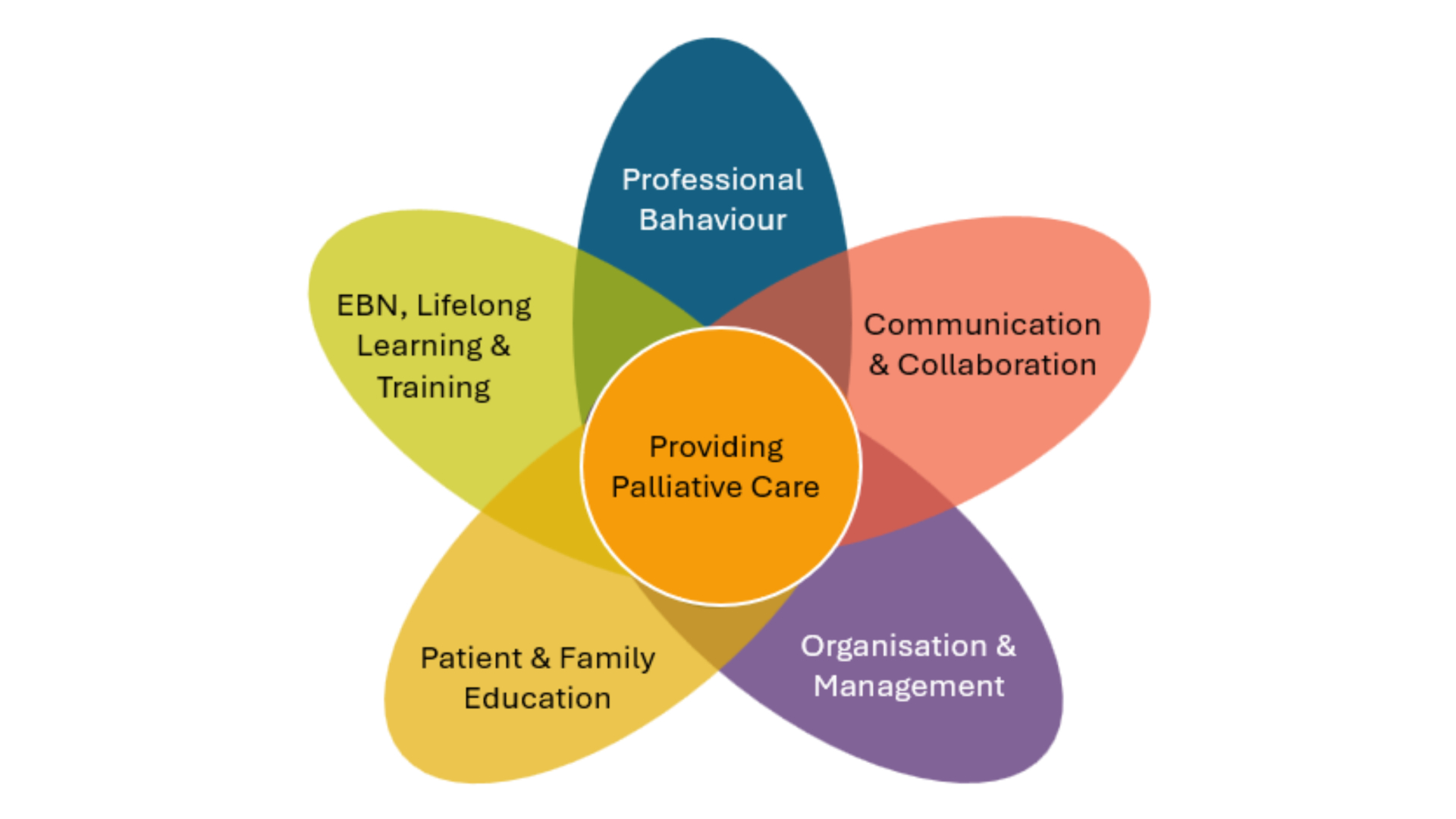The PalcNet project has reached a major milestone with guiding the development of courses and training programmes for nursing educators based on a validated competence framework for palliative care, specifically adapted to the Chinese healthcare context. Created through close collaboration between Chinese and European partners, the framework lays a strong foundation for advancing palliative care education and practice in China.
PalcNet project deliverable “Guidelines for the development of courses and training programmes” introduces the core competences verified throughout the whole duration of Work Package (WP) 2, and serves a foundational reference for WP3 and WP4 developing competence-based curricula tailored to the Chinese healthcare context.
The Guidelines firstly presents the core competence framework, including the definition and levels of palliative care, as well as the key competencies and their related learning outcomes. Drawing on evidence-based sources including research, literature, curricula, and international guidelines, the framework was shaped collaboratively. Its structure aligns with established models such as the European Federation of Nurses and CanMEDs, building on the successful GeNEdu project for gerontological nursing to ensure cross-cultural relevance. The framework identifies six essential, interrelated competencies that together form the complete profile for palliative care in China:
- Providing Palliative Care
- Communication and Collaboration
- Organisation and Management
- Patient and Family Education
- Evidence-Based Nursing (EBN), Lifelong Learning (LLL), and Training
Professional Behaviour



